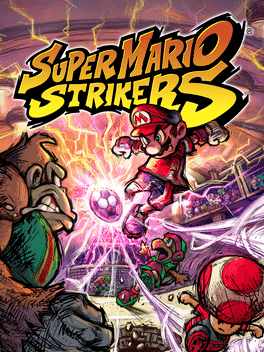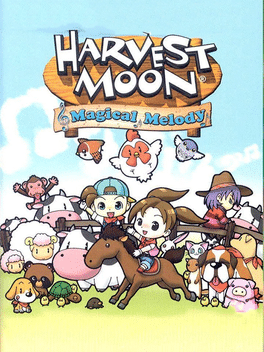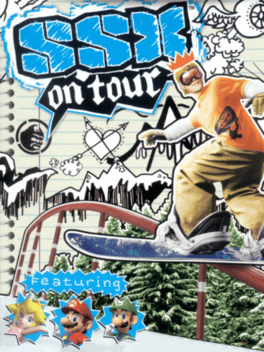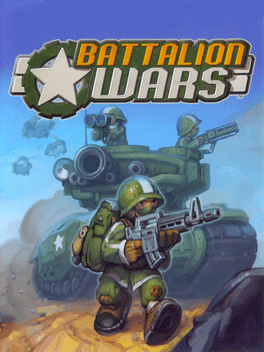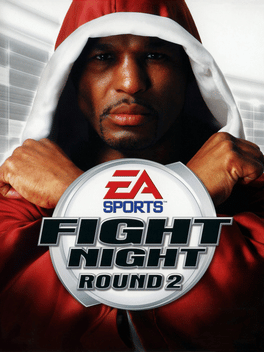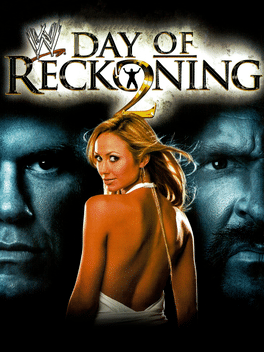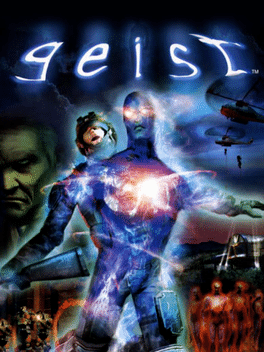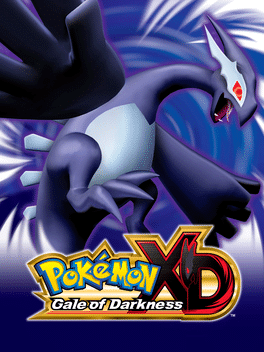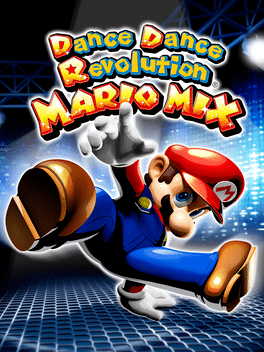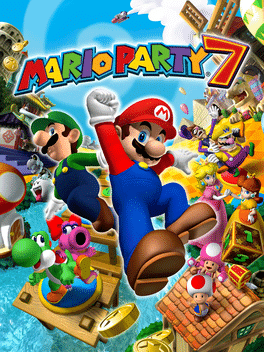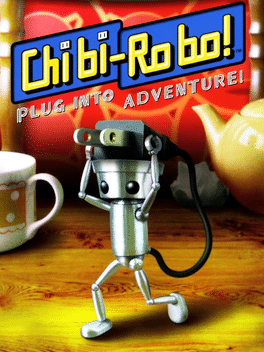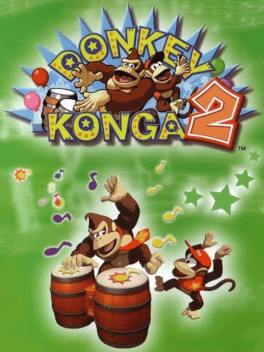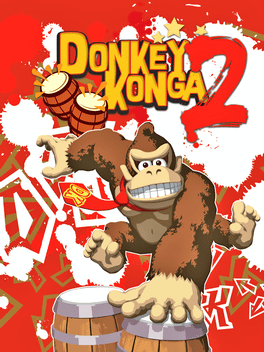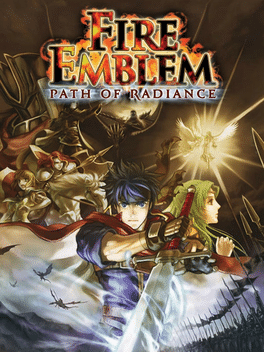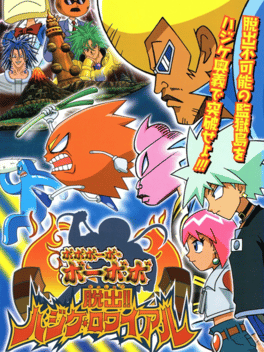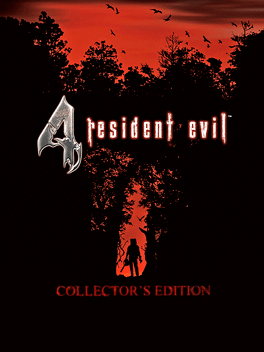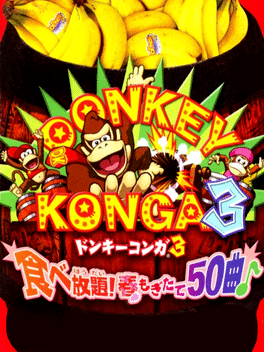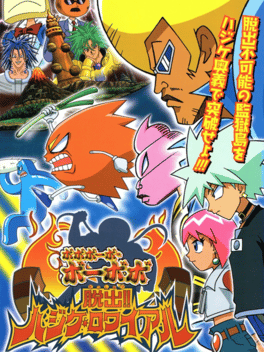New Nintendo Gamecube Games - Page 6
-
Super Mario Strikers
2005
Super Mario Strikers
2005
star 7.8Super Mario Strikers is the first game in the Mario Strikers series, it features a version of soccer without referees and rules and has power-ups and special strikes which count as two goals. In comparison to actual soccer, the game features a smaller version of the soccer field and each team has only five members instead of the usual eleven-a-side rule. The match time can be manually set from 2 to 15 minutes but is defined as 5 minutes by default. If time runs out when scores are level, a Sudden Death follows the regular game time where next goal wins. -
Harvest Moon: Magical Melody
2005
star 6.5Flower Bud Village wasn't a blossom of a burg when you bought a plot of land. Now newcomers depend on the bounty from your land for their livelihoods. It's up to you to create a farm, raise a family and build a village in the most challenging Harvest ever! -Play as a girl or as a boy! -Buy farm land next to a river, along a seashore or in a village! -Plant crops, raise livestock, dig for gems or just fish! -Beat your farming rival in the fields and at the festivals! -Unlock hidden multiplayer mini games! -
SSX on Tour
2005
SSX on Tour
2005
As an addition to the Nintendo GameCube version of the game, Mario, Luigi, and Princess Peach were added as playable characters, along with a new race track called Nintendo Village. -
Battalion Wars
2005
Battalion Wars
2005
star 7.5A global conflict has reached a stalemate in the console version of the Game Boy Advance series Advance Wars. The evil Kaiser Vlad, seeking to take advantage of the standoff, has assembled an army of shock troops, forcing The Western Frontier and the Tundran Territories to ally and fight back. Battalion Wars is a real-time strategy game that lets you control teams of soldiers and vehicles and lead them through more than 20 missions, using a variety of weapons and tactics. -
Fight Night Round 2
2005
-
WWE Day of Reckoning 2
2005
star 7.3See the emotion on each WWE Superstar's face like never before and experience all-new "beyond broadcast" camera angles -
Geist
2005
Geist
2005
star 6.9Take Possession! When a mission goes horribly wrong, you are captured and subjected to a ghastly experiment that rips your spirit from your physical body. Now you are trapped, forced to roam the halls of the shadowy Volks Corporation as a spectral phantom. As you explore, employ you hair-raising power of possession to control humans, animals and objects to infiltrate the compound, solve puzzles, and strike at your enemies. Only by unearthing the dark secrets of the Volks Corporation will you unravel the mystery of your condition and find a way to recover your human form. -
Pokémon XD: Gale of Darkness
2005
star 5.5Pokemon XD is a sequel to the role-playing game Pokémon Colosseum. You'll play as Michael, a Pokémon trainer who is trying to thwart the evil Cipher. Cipher plans to control the world by using the powerful, but unpredictable, shadow Pokémon. Now you must fight back by collecting your own shadow Pokémon and beating Cipher's goons in battle. Pokémon XD also lets you import Pokémon from Game Boy Advance Pokémon games and participate in head-to-head battles with other players. -
Mario Superstar Baseball
2005
star 6.1The superstars of the Mushroom Kingdom have gathered on the diamond to power up America's game! Pick a captain, fill your team with your favorite characters from the Mario universe, then hit the field. Each captain has a special Star Skill for pitching and batting, so whether you're hurling fireballs as Mario or blasting curving banana-ball dingers as DK, you've never played ball like this! -
Dance Dance Revolution Mario Mix
2005
star 7.2Boogie down with Mario in his own dance party. Players shake their things to more than 25 dance-flavored songs, from classic Nintendo themes to familiar favorites. With five difficulty levels, dancers of all abilities will be able to get into the groove. The special "Workout" feature tracks the calories burned while playing. Someone has stolen the Music Keys and released the music they held. Without the Music Keys, the unstable power of the music is wreaking havoc on the land. Mario must recover them before the chaos destroys the entire Mushroom Kingdom! The path to the keys is simple: Left, Right, Up, Down, Right, Down ...Characters include Mario, Luigi, Toad, Waluigi, Wario, Bowser. Players clear levels by performing the correct steps. Once they clear all the levels in a particular world, they'll collect a Music Key. Collect all the Music Keys to win. Players control Dance Dance Revolution: Mario Mix by stepping on different arrows on the Action Pad (included with game). Players can finally experience the thrill -
Mario Party 7
2005
Mario Party 7
2005
star 5You can play more than 80 new minigames in the most recent Mario-themed party game, Mario Party 7. Mario and pals needed some time off, but they forgot to invite Bowser on their cruise. You can battle against an angry Bowser or up to seven of your friends on a single GameCube system. Mario Party 7 includes a few new characters and brings back microphone support from Mario Party 6. -
Chibi-Robo!
2005
Chibi-Robo!
2005
star 7.9Like most families, the Sandersons bicker about money and cleaning. Unlike most families, though, they also have robotic spiders, aliens, and talking toys to worry about. Enter Chibi-Robo, a tiny robot programmed to spread happiness. Join him on his quest to restore order to the Sanderson house and SAVE THE WORLD! -
Donkey Konga 2
2005
Donkey Konga 2
2005
star 5The European port of Donkey Konga 2, which has a track listing different from the Japanese and North American versions. -
Donkey Konga 2
2005
Donkey Konga 2
2005
The American port of Donkey Konga 2, which has a track listing different from the Japanese version. -
Homeland
2005
Homeland
2005
star 2.3Homeland is a Japanese-exclusive game for the Nintendo GameCube. Its main claim to fame is that it is the only non-Phantasy Star Online title in the system's library to officially support online multiplayer, although the implementation of it is different compared to most other games. -
Fire Emblem: Path of Radiance
2005
star 8.2Fire Emblem: Path of Radiance is a tactical role-playing video game developed by Intelligent Systems and Nintendo SPD, and published by Nintendo for the GameCube home console in 2005. It is the ninth main installment in the Fire Emblem series,[c] and the third to be released in the west. As with previous installments, gameplay revolves around positioning characters on a battlefield to defeat an opposing force. If characters are defeated in battle, they are removed from the rest of the game. -
Bobobo-bo Bo-bobo: Dassutsu! Hajike Royale
2005
Boboboubo Boubobo Dassutsu! Hajike Royale is an Action game, published by Hudson, which was released in Japan in 2005. -
Resident Evil 4: Collector's Edition
2005
star 8.2An exclusive Collector's Edition of Resident Evil 4 released only in Australia, this package includes the base game and a bonus disc featuring videos from every title in the series—Resident Evil 0, Resident Evil, Resident Evil 2, Resident Evil 3: Nemesis, Resident Evil Code: Veronica, and Resident Evil 4—along with exclusive behind-the-scenes interviews and making-of content with the creators of Resident Evil 4. -
Donkey Konga 3: Tabehoudai! Haru Mogitate 50 Kyoku
2005
star 7.2Donkey Konga 3: Tabe-houdai! Haru Mogitate 50 Kyoku is a music video game in the Donkey Kong series developed by Namco and published by Nintendo. Before the second installment was released in North America, Nintendo and Namco had already started plans for the third game in the series, which, unlike the first two Donkey Konga games, was eventually released only in Japan in early 2005. Donkey Konga 3 features a total of 57 track (includes the all new track), over 20 track more than the first two games. 35 of these tunes are the usual classical, pop, and game selections, but an extra 21 tunes from Nintendo Famicom games are included. It also features features all new minigames. The title of "Donkey Konga 3 JP" was given in Super Smash Bros. Brawl. -
Bobobo-bo Bo-bobo: Dasshutsu!! Hajike Royale
2005
star 2.8After receiving an invitation from a mysterious person, Bo-bobo and rebels decide to go to Prison Island. Upon arriving at the island, Bo-bobo gets separated from his friends. In addition to that, the island also brings together members of both the third and fourth eras of the Maruhage Empire that Bo-bobo have defeated in the past.
